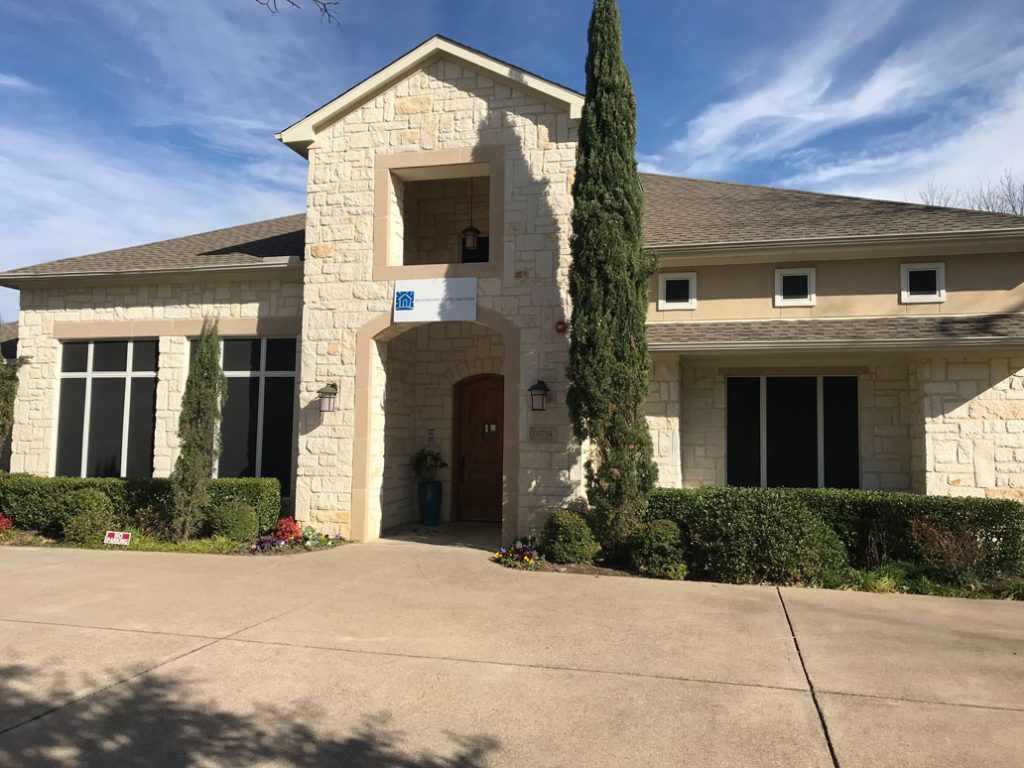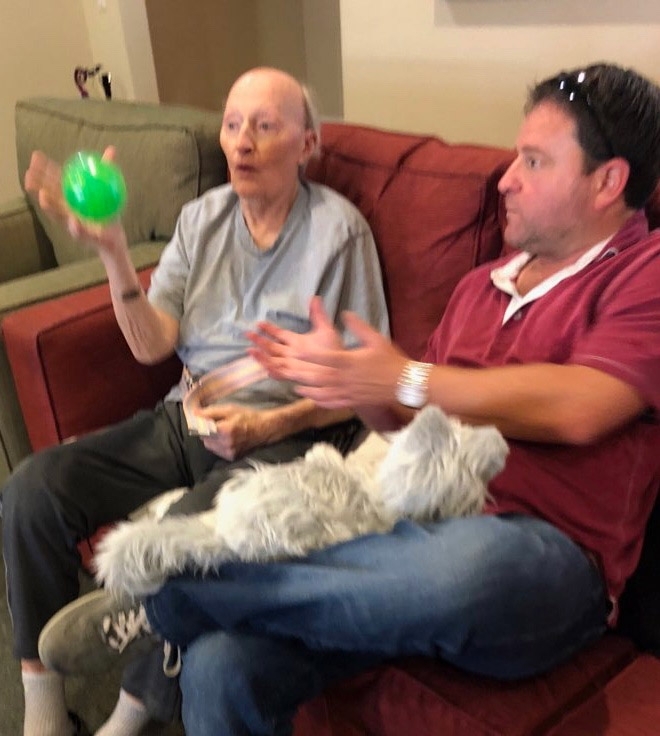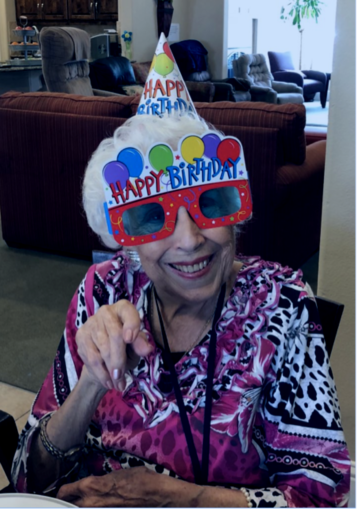When is it the right time to think about aging in place?
I recently visited my last living uncle in St. Petersburg, Florida. My uncle is 99 and in amazing health.
His wife, age 96, is not in such good health and is confined to a hospital bed at home. They are living with my cousin, who is taking loving care of them. Watching them interact was both heart-grabbing and wrenching. They have been married for more than 70 years. They live life as a unit, finishing each other’s sentences, recalling words for each other, and yes, fussing at each other.
And watching my cousin go full-circle and take care of his mother was beautiful.
Would my son do the same? Could he? My cousin and his wife feed her, patiently dole out medications, get up with her during the night, clean up after her, and even sponge bathe her all the while keeping an eye on my uncle as he “putters.” Caretakers do come to the house to relieve them, occasionally, under Florida’s Medicaid program. As you can see, everyone wants to retire in Florida.
But most children are not able to care for their parents the way my cousin is. For one thing, he is retired and already lived in Florida. Like his dad, he is healthy, vibrant, and active, and his wife is an active participant. But caring for ailing parents or relatives is a 24/7 job that can take its toll on the caregivers physically and financially.
Planning For Retirement
Recently, PropertyShark, the folks who are usually telling us what Millennials are doing, conducted a survey with Americans aged 45 and older on housing, retirement, and finances. Key take-aways have profound implications for real estate:

- More than half of those 45 and older want to remain in their current homes for their senior years.
- 3 out of 5 have less than $100,000 saved for retirement; only 4% have more than $1 million set aside.
- Nearly one-third have struggled to keep up with housing costs in the past year.
- Close to 1 in 3 older adults don’t plan on ever fully retiring.
- Half of the cohort lacked knowledge of government programs related to senior housing.
- 1 in 4 older adults looking to retire outside their home state want to move to Florida.
What can children do with their parents if they cannot care for them in either’s homes? How can they provide loving care in their twilight years, and still keep them in a natural home environment?
One North Texas option is group care that emulates the private home experience as much as possible: Manchester Living.
Offering a New Kind of Aging in Place
Manchester Living is a locally-owned and operated provider of boutique assisted-living centers in Dallas, Texas. The company is known for personalized attention and a vetted, trained staff. There are two divisions: Manchester Care Homes and Cambridge Caregivers.
Cambridge Caregivers is a locally-owned and operated provider of non-medical caregiver services. All of their caregivers are CNA’s and are full-time, W-2 employees who have completed extensive training developed by their staff physician.
Manchester Care Homes are assisted living homes that are custom built primarily for the purpose of housing a group of seniors or limited-functioning adults. Unlike a nursing home, these homes are basically a residential home with multiple master bedroom suites.
More than half of boomers over age 45 may want to stay in their homes, but many will not be able to should dementia or debilitation set in. Manchester Place has four residential locations in Dallas: Coit and Campbell, St. Michaels and Royal Lane, Tranquilla Drive near White Rock Lake, and Spring Valley at Hillcrest. Residents range as young as 40 (acute brain injury) to age 101. The cost is about $6,000 a month, depending on the level of care needed. Some residents are painting and knitting while others do not know where their elbow is, their dementia is so advanced. The homes offer a safe, secure, and comfortable place for loved ones who require constant care.
Built to be a part of The Neighborhood
Being of a real estate brain that is still active, what I found most fascinating is that Manchester custom builds these homes within an existing neighborhood to purposely create an at-home environment which closely resembles their own home, most senior’s preferred place.
“We want our residents to feel just like they would in their own home,” says Brian Levy, Director of Business Development and Marketing. “In fact, each resident is assigned a bedroom suite that they are encouraged to outfit with their own furniture and tastes, down to selecting paint colors for the walls.”
They are also encouraged to hang uploads of family photos to recreate the environment of their old homes. To further the “at home” and family-like feel, Levy and his kids even bring their dog over each Saturday to snuggle the residents.

Each suite has its own master-style bath, similar to one in a private home, but with handicap-friendly accessories, such as handle-bars and wheel-chair accessible showers. Yeah, vessel tubs be damned, we will need those someday. There are even small (and private) suites within the home for couples: a bedroom, master bath and small living area just for the couple to be alone when they don’t want to hang out in the family room. Each room is equipped with emergency call buttons, and at least two staff members are on duty through the night.
There is a large outfitted kitchen, and a full-time cook prepares three home-cooked meals a day which guests can eat in the dining room, on the patio, or in their suites. They can even invite guests, like local family, for dinner.
The St. Michael’s location is in our Preston Royal neighborhood; I always thought it was a large, single-family home. It’s been there for ten years, and you would never suspect, from the exterior, this is an “assisted living center.” On a recent visit, the staff was cooking home-made french-fries at the stove for lunch. The large family room looked just like a family room in any house on the street, except this one was pretty large and lined with uber comfy recliners and blankets. The TV was on, and residents were either watching or snoozing.
“All our homes were built around 2009,” says Levy. “They are custom, ground-up builds, not converted properties.”
All are McMansion-sized: The 10-bedroom home is 7,200 square feet, the eight-bedroom is 4,500.
Life at Home
“We really do make it a home,” says Levy. “It is THEIR home. Families often come for dinner, and all vendors come to the house such as beauticians for hairstyling, manicurists for mani/pedis, even the resident’s own doctor.”
And it’s not like the residents are in prison. If mobile, they can go out with a family member or can arrange for other transportation. One gentleman leaves regularly to play poker, says Levy, others leave when they want to go get a Whataburger, to a doctor’s appointment, or go to church. The staff doctor comes to the homes once a week for medical check-ups or as needed; Levy says the doctor’s mother-in-law even lives in a Cambridge Home.

Levy first discovered Cambridge Homes when his own grandmother lived in one. While visiting her, he was impressed with the concept, the home, and the staff. At that time, he was developing an apartment renovation business, but he decided to make a career change. He approached Manchester Living four years ago and asked if they needed a marketing director.
“Really, I’m a non-licensed social worker,” he jokes.
Adam Lampert is the CEO of Manchester Living.
“We saw a niche in the marketplace that was destined to grow as more Baby Boomers edged into their twilight years,” says Lampert.
From inception, Lampert knew that staffing would be one of the most crucial parts of the business. Manchester screens scrupulously, pays competitive salaries and full health benefits, and more: the company even offers no-interest loans to employees for cars or family emergencies, if needed. The staff retention rate is extraordinary as a result, for both the in-home caregivers and group home staff. The four locations are faring well, so much that Lampert is seeking more raw land for more homes.
“Our residents are aging in place with us, so quality of staff is very important,” says Levy. “When you shave and bathe someone, you get to know them pretty well. One of our staff flies with one client to his ranch every weekend. We go to one client’s annual summer family trip every year. We even go to their families’ graduations, allowing them the pleasure of being with loved ones and celebrating together as a family, just with a little extra help at their side.”
